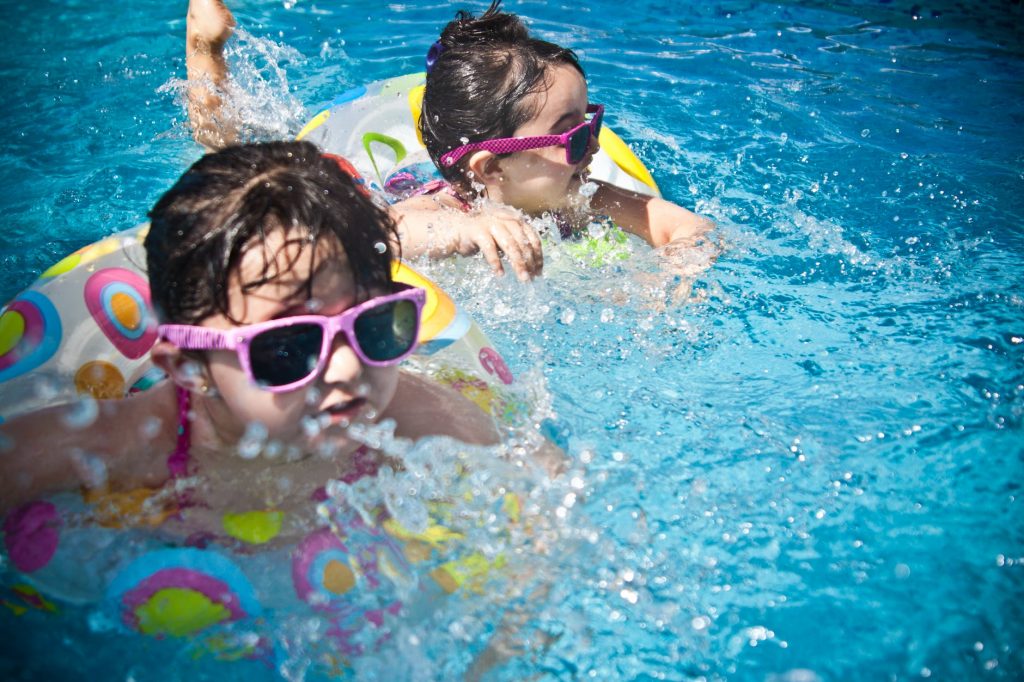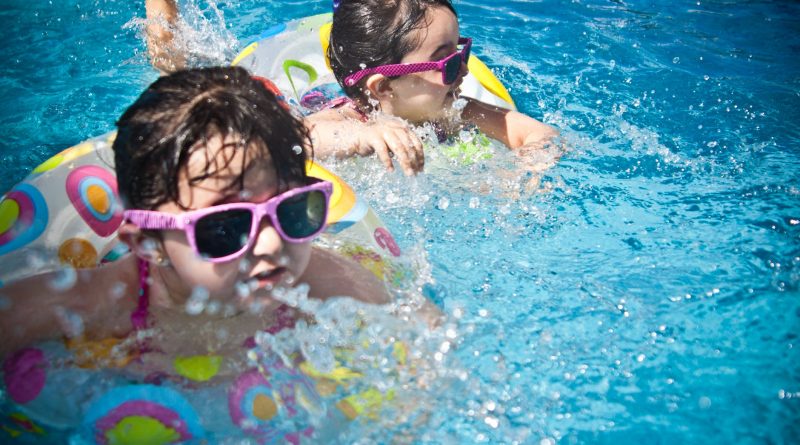6 Swimming benefits to teaching your Babies

Enrolling your baby in swimming classes or even letting them get anywhere remotely near a pool is probably not a parent’s first instinct. Adults often associate swimming pools with drowning incidents or unsafe environments for their kids, but the truth couldn’t be farther from that.
Infants aged zero to six months old have a pair of survival reflexes that activate when they are underwater. This is why you see babies getting thrown in the pool but able to swim their way to safety.
- When babies are belly-side down in the water, they will automatically move their limbs in a swimming motion.
- When babies are submerged underwater, they will automatically hold their breath and open their eyes. They do the same thing when you gently blow on their face.
It’s important to note that these reflexes don’t equate to swimming skills, and they still need your help—or that of a professional’s. At this stage, their reflexes are strongest, but they don’t have enough control over their bodies to move around with stability.
This is where swim time comes in. There are many benefits to teaching your baby to wade around underwater. Before your child’s first swimming lessons, or if you need some help convincing that they need it, read through the advantages listed below.
- It improves cognitive development
When babies swim, they move their arms and legs and feel the resistance in the water. These movements also involve both sides of the body, which helps their cognitive function improve. Think about it: You are also helping them improve their locomotor skills and develop strength and balance in their bodies when you enroll them in swimming classes.
This advances their brain development and helps other skills down the line to improve, such as reading, speech, and learning skills, plus spatial awareness. This developed intelligence can manifest in many ways, such as academic excellence, involvement in hobbies, agility in sports, and so much more.
- It starts off their path to healthy living
Swimming is a gentle yet effective total body workout for your young ones, encouraging muscle, lung, and heart development in babies. Those who start their swimming sessions early will show long term benefits too, with fewer respiratory problems, lowered risk for heart conditions, and stronger muscles.
Start them young, while they still have those kicking reflexes, so they don’t get afraid of water or bath time when they reach around three to five years of age.
- It fosters healthy social connections
Swimming is also a great way to bond with your kids, as this will be a contact activity for them at this stage. Having a fun coach, coupled with the presence of a parent, will help them associate positivity with touch, form trust, and have a fun activity to look forward to!
Some swim classes are group sessions, making it an excellent avenue for them to meet and interact with other babies. This increases their social skills and allows them to form verbal and non-verbal communication skills, among others.
Not only that, but you will also probably see them grow into independent kids. All that exposure in the pool isn’t just helping them exercise their bodies, but fulfilling their social and emotional needs, too. They’ll be able to carry themselves with comfort in new situations and have greater self-control in the long run.
- It reduces the long-term risk of drowning
Studies show that children four years old and up who know how to swim have dramatically lesser chances of drowning in the pool. However, note that you can’t expect these for infants below one year, as they do not have the fully developed locomotor skills to save themselves. Strict parental supervision is still a must during this stage.
At four years old, your child would have already developed the confidence to control their bodies, swim, and float efficiently on water. It still goes without saying that you should never leave your child near the pool unsupervised, regardless if they had lessons or not.
- It improves their appetite
Growing babies have tons of energy, and there’s nothing like a day in the pool to use that all up. Even as adults, you’ve probably felt the need to recharge with snacks after a full day at the pool. The same is true with your young ones. You’ll notice an increase in your baby’s appetite, which can be an excellent way to introduce nutritious food groups into their diet at a young age.
- It makes it easier to encourage natural sleeping patterns
Babies and kids are known to have erratic sleeping schedules, again, owing to all that energy that they have. When they’re swimming, they’re using up a lot of that stored energy to help them move their bodies, interact with other people, and warm their bodies. The result isn’t just a hungry kid, but a tired one, as well.
This could be your chance to introduce natural sleep schedules for them, such as short naps in the afternoon and sleeping earlier at night.
Keep Swim Time Safe
Introducing your baby to swimming will do them a lot of good in the long run, as long as you also take the necessary safety measures during classes. Go ahead and dive right in!
Author Bio:
Sam Jackson is the Managing Director and Coach at Marsden Swim School in Singapore. Over the past 13 years, he has taught children as young as 4 months right through to competitive swimmers and adults. Has a real passion for technology and making swimming as safe, efficient and enjoyable as possible.




